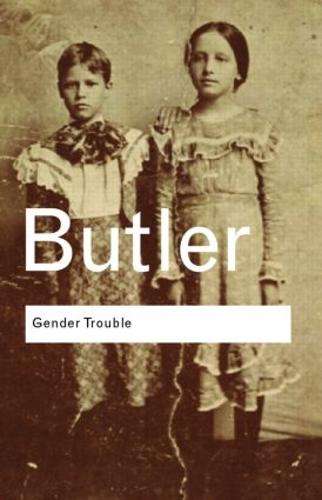Judith Pamela Butler is an American philosopher and gender theorist whose work has influenced political philosophy, ethics, and the fields of third-wave feminism, queer theory, and literary theory. In 1993, Butler began teaching at the University of California, Berkeley, where they have served, beginning in 1998, as the Maxine Elliot Professor in the Department of Comparative Literature and the Program of Critical Theory. They are also the Hannah Arendt Chair at the European Graduate School.
Butler is best known for their books Gender Trouble: Feminism and the Subversion of Identity (1990) and Bodies That Matter: On the Discursive Limits of Sex (1993), in which they challenge conventional notions of gender and develop their theory of gender performativity. This theory has had a major influence on feminist and queer scholarship. Their work is often studied and debated in film studies courses emphasizing gender studies and performativity in discourse.
Butler has supported lesbian and gay rights movements, and they have spoken out on many contemporary political issues, including criticism of Israeli politics.
Gender Trouble: Feminism and the Subversion of Identity was first published in 1990, selling over 100,000 copies internationally, in multiple languages. Gender Trouble discusses the works of Sigmund Freud, Simone de Beauvoir, Julia Kristeva, Jacques Lacan, Luce Irigaray, Monique Wittig, Jacques Derrida, and Michel Foucault.
Butler offers a critique of the terms gender and sex as they have been used by feminists. Butler argues that feminism made a mistake in trying to make “women” a discrete, ahistorical group with common characteristics. Butler writes that this approach reinforces the binary view of gender relations. Butler believes that feminists should not try to define “women” and they also believe that feminists should “focus on providing an account of how power functions and shapes our understandings of womanhood not only in the society at large but also within the feminist movement.” Finally, Butler aims to break the supposed links between sex and gender so that gender and desire can be “flexible, free floating and not caused by other stable factors”. The idea of identity as free and flexible and gender as a performance, not an essence, is one of the foundations of queer theory.

